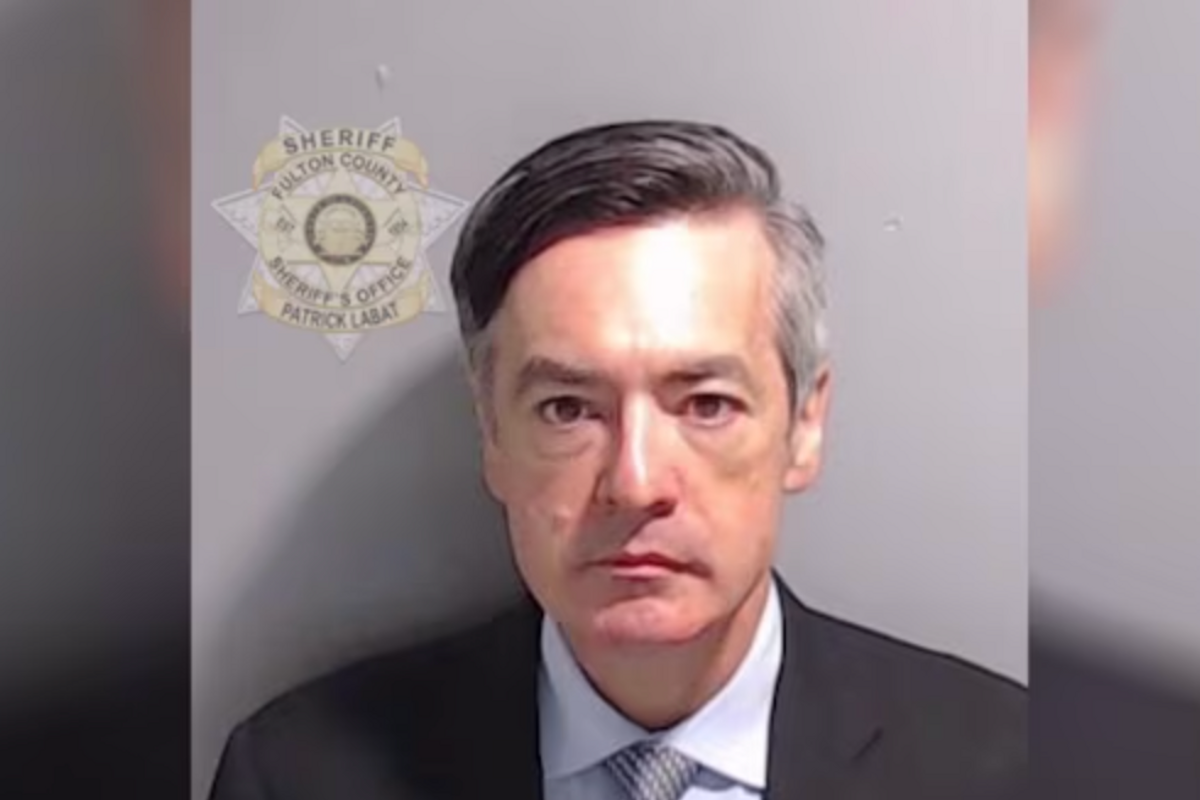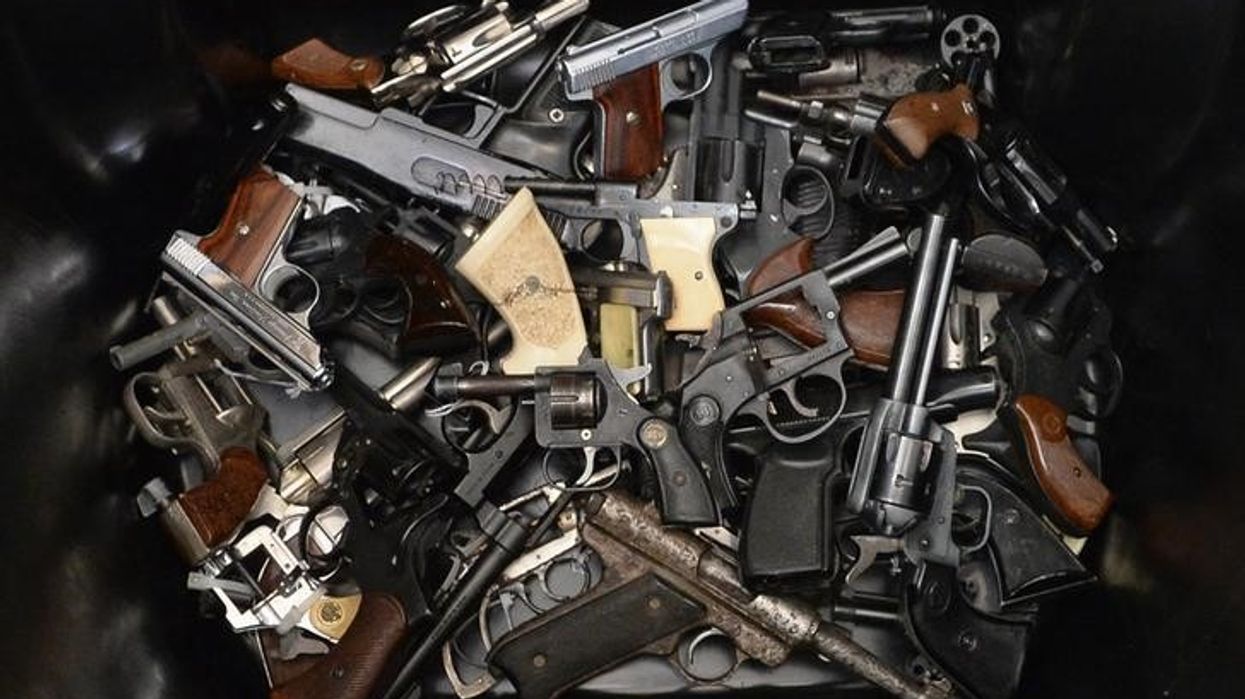Kenneth Chesebro in Fulton County, Georga mugshot
Where did Kenneth Chesebro come from? Son of a Wisconsin music teacher, he amassed sterling credentials, a Harvard Law degree chief among them. On paper he was impressive. But then he joined a conspiracy to overthrow the democracy. Chesebro gives credentials a bad name.
He applied his legal skills to veil criminal activity under plausible-sounding theory — all the while covering, so he thought, his own posterior. In the end, Chesebro was charged with working on slates of faked electors to overturn results in several states.
One can only marvel at his fancy legal spinning designed to facilitate the destruction of America's revered institutions. But being the careful lawyer he was, Chesebro told the Trump camp that the scheme "could appear treasonous." You don't say.
What made him do it? It isn't that he had been a Democrat who went to the other side. Yes, he had helped his Harvard mentor Laurence Tribe work for Al Gore in the disputed 2000 election. If he jumped the political chasm to advocate for Donald Trump, that was his right.
But if he truly believed in the MAGA cause, that the election was stolen, he wouldn't have agreed to flip on Trump. He would have taken the lumps and tried to defend himself in court.
The best explanation for Chesebro's performance is simpler, and boy, it is sad.
"He wanted to be close to the action," is how Tribe put it. He wanted attention.
Chesebro's Ivy polish was surely a draw for Trump given the downmarket personas of his other legal advisers. There was the batty Sidney Powell, the strutting John Eastman in his jaunty hat and flapping scarf, and the pathetic Rudy Giuliani.
Making a plea deal in the Georgia election interference case, however, puts Chesebro in the intimate company of Powell, whose swanning on TV about the plot to steal the election got so weird Trump had to fire her. Even back then, Chesebro was too smooth to join Powell in her utterly nutty claims that a dead Hugo Chavez was pulling the strings for Joe Biden. A discussion of what Powell truly believed is best left to the psychiatric profession, not the legal one.
Chesebro reportedly did tell the Trump team that a Supreme Court ruling before Jan. 6 would be more favorable to their cause if the justices feared there would be "wild" chaos on that day. This was a reference to Trump's Dec. 19 tweet: "Big protest in D.C. on January 6th. Be there, will be wild!"
What could be the harm in adding a tablespoon of intimidation into the devil's cake mix? Though Chesebro opined that there was only a 1% chance the justices would step in, appealing to them, he offered, could have "possible political value."
Both Chesebro and Powell made plea deals to snitch on other Trump allies. They include promises not to lie at the co-defendants' trials. Back in September, Scott Hall, a Georgia bail bondsman, became the first Trump ally to plead guilty in the racketeering case.
They're all getting sweet probation deals.
On January 6, Chesebro donned a MAGA hat and descended on the Capital to stop the certification of the election that Joe Biden clearly won. But he will not spend a day in prison, unlike the dopes who charged past him and broke into the Capital.
Because he knew what he was doing, Chesebro proved himself more ethically vacant than the Trumpian mobs. He applied oily legal arguments made potent by an elite education. Supporting an insurrection against the United States, he undoubtedly figured, could be a good career move.
Chesebro now says he abhorred the violence on January 6. Wouldn't he just.
Froma Harrop's column for Creators Syndicate appears in more than 150 newspapers. She is based at the Providence Journal. Follow her on Twitter @FromaHarrop. She can be reached at fharrop@gmail.com.
Reprinted with permission from Creators.


